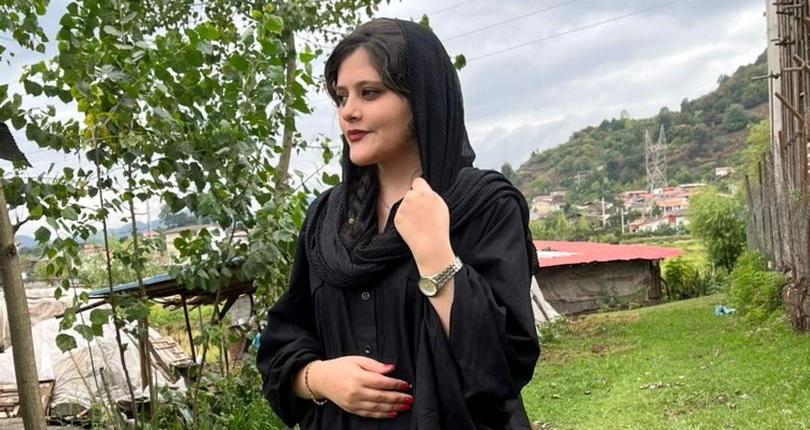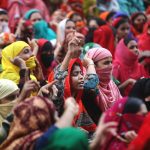
The end of Mahsa Amini’s life has sparked the beginning of a revolution.
Early last week, 22-year-old Amini was arrested by Iran’s morality police, a law enforcement agency tasked with enforcing dress and behavior requirements placed upon the country’s women. They detained her while she was traveling to visit relatives with her brother.
Hours later, she was admitted to a local hospital to treat head trauma, Iran International reported. Days later, she was dead.
Eyewitnesses reported seeing officers assaulting Amini inside of their van; Iranian officials deny the allegations, stating that Amini had a prior illness that caused her death. But her family doesn’t believe that, claiming she was otherwise healthy. “They have to explain for what crime, for what reason did they do this?” her mother was quoted as saying by The New York Times.
She added, “I am her mother, and I am dying from grief.”
Scores of other Iranian women aren’t buying officials’ explanations, either. Her story, and circulating images of a comatose Amini, have sparked days of protests among fed-up citizens. Women have been burning their hijabs and cutting their hair in public in direct defiance of Iran’s Sharia laws – the very laws morality police officers are tasked with enforcing.
On social media sites, videos and images of demonstrations have been pouring in. One such post shows protesters taking turns tossing hijabs into a bonfire as onlookers cheered; another one shows women removing their hijabs in broad daylight, waving them in the air and chanting together.
“This time protesters aren’t only calling for justice for Mahsa Amini,” Hadi Ghaemi, executive director of the New York-based Center for Human Rights in Iran, told CNN. “They’re also calling for women’s rights, for their civil and human rights, for a life without a religious dictatorship.”
The protests haven’t come without consequences for Iranians, though. In addition to reports of violent altercations with police, several people are said to have lost their lives, and Iranian authorities shut down the country’s internet and restricted access to apps like Instagram, to further stem the spread of information.
Movements opposing nationwide strict dress codes – which first came about following the 1979 Islamic Revolution under the leadership of Ayatollah Khomeini, and are still in place thanks to conservative President Ebrahim Raisi – are not new. Movements such as “My Stealth Freedom” and “The Girls of Revolution Street” have organized women opposing the restrictions for years.
Now, others around the world are speaking up on their behalf. President Joe Biden, for example, voiced his support of Iranian protesters, stating that “we stand with the brave citizens and the brave women of Iran who right now are demonstrating to secure their basic rights” while addressing the United Nations General Assembly.
“The authorities must stop targeting, harassing, and detaining women who do not abide by the hijab rules,” acting UN High Commissioner for Human Rights Nada al-Nashif additionally told BBC, calling for those laws to be repealed – and for Amini’s death to be investigated “promptly, impartially and effectively investigated by an independent competent authority.”
Until then, women will continue to rage against the regime – no matter the cost. According to Reuters, one group of protesters could even be heard shouting, “We will die, we will die, but we’ll get Iran back,” while setting fire to a police station.



